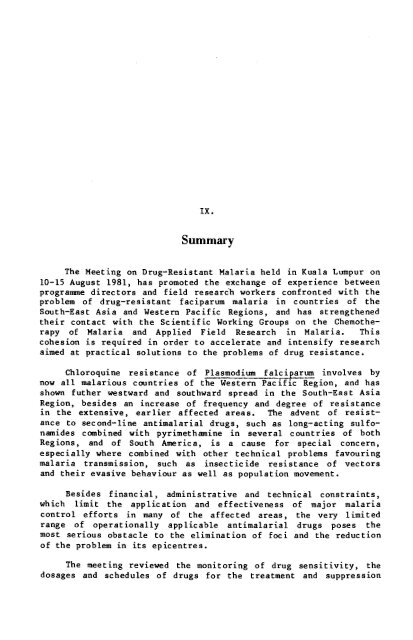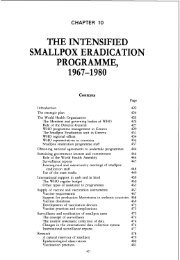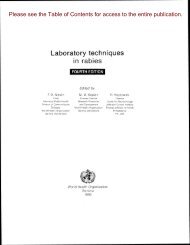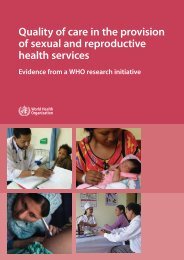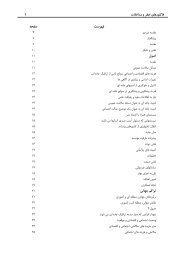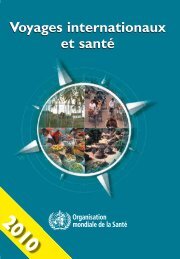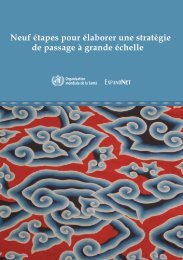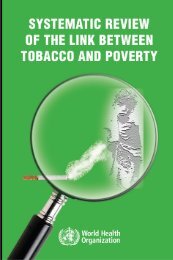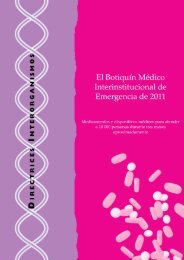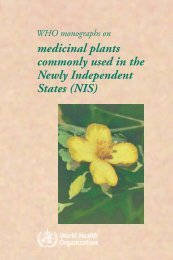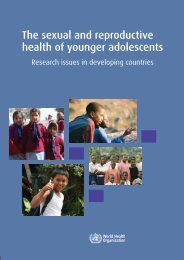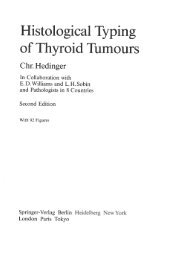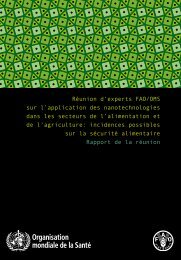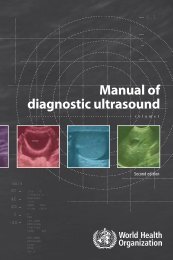Drug-Resistant Malaria - libdoc.who.int - World Health Organization
Drug-Resistant Malaria - libdoc.who.int - World Health Organization
Drug-Resistant Malaria - libdoc.who.int - World Health Organization
You also want an ePaper? Increase the reach of your titles
YUMPU automatically turns print PDFs into web optimized ePapers that Google loves.
IX.<br />
Summary<br />
The Meeting on <strong>Drug</strong>-<strong>Resistant</strong> <strong>Malaria</strong> held in Kuala Lumpur on<br />
10-15 August 1981, has promoted the exchange of experience between<br />
programme directors and field researc'h workers confronted with the<br />
problem of drug-resistant faciparum malaria in countries of the<br />
South-East Asia and Western Pacific Regions, and has strengthened<br />
their contact with the Scientific Working Groups on the Chemotherapy<br />
of <strong>Malaria</strong> and Applied Field Research in <strong>Malaria</strong>. This<br />
cohesion is required in order to accelerate and <strong>int</strong>ensify research<br />
aimed at practical solutions to the problems of drug resistance.<br />
Chloroquine resistance of Plasmodium falciparum involves by<br />
now all malarious countries of the Western Pacific Region, and has<br />
shown futher westward and southward spread in the South-East Asia<br />
Region, besides an increase of frequency and degree of resistance<br />
in the extensive, earlier affected areas. The advent of resistance<br />
to second-line antimalarial drugs, such as long-acting sulfonamides<br />
combined with pyrimethamine in several countries of both<br />
Regions, and of South America, is a cause for special concern,<br />
especially where combined with other technical problems favouring<br />
malaria transmission, such as insecticide resistance of vectors<br />
and their evasive behaviour as well as population movement.<br />
Besides financial, administrative and technical constra<strong>int</strong>s,<br />
which limit the application and effectiveness of major malaria<br />
control efforts in many of the affected areas, the very limited<br />
range of operationally applicable antimalarial drugs poses the<br />
most serious obstacle to the elimination of foci and the reduction<br />
of the problem in its epicentres.<br />
The meeting reviewed the monitoring of drug sensitivity, the<br />
dosages and schedules of drugs for the treatment and suppression


